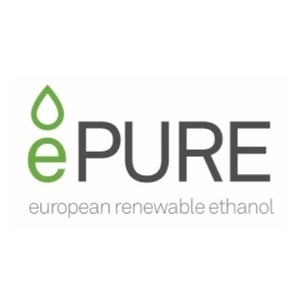EU ethanol contributes to Europe's energy independence

March 11, 2022
BY ePURE
The European Commission’s RePowerEU proposal to boost EU energy security is an important step to reducing dependence on imported crude oil and ensuring stable domestic production of fuel and food, while continuing the drive to carbon-neutrality.
As a proven, domestically sourced technology for reducing emissions from road transport – renewable ethanol from ePURE members achieves more than 75 percent average emissions saving compared to fossil petrol – EU renewable ethanol has a strategic role to play in this effort.
“EU renewable ethanol production is about more than just renewable low-carbon fuel that helps Europe achieve its climate goals by displacing fossil petrol,” said ePURE Director of Government Affairs Simona Vackeová. “For every tonne of renewable ethanol produced in the EU, there is also a tonne of high-protein, GMO-free animal feed with a high metabolic value, contributing to EU food security by reducing the need to import such feed.”
Advertisement
European renewable ethanol production alone supplied around 1.7 percent of the protein feed of EU origin in 2019. In 2020, ePURE members produced 4.22 million tonnes of animal feed while continuing to supply fuel ethanol to offset fossil petrol.
Importantly, EU renewable ethanol also has other strategic uses, including applications for industry, food and beverage, and health care. The latter has been demonstrated during the COVID-19 pandemic as EU ethanol producers ensured a stable domestic supply of ethyl alcohol for use in hand sanitizers and gels.
Advertisement
“EU ethanol can do even more in the drive to offset fossil fuel and reduce the need for imports of animal feed,” said Vackeová. “The old ‘food vs. fuel’ and sustainability myths about EU ethanol have all been busted and it’s clear that renewable ethanol is among the sustainable biofuels with the lowest carbon abatement costs that should be part of the EU Green Deal and Fit for 55 landscape.”
Importantly, the EU agricultural area used to cultivate crops for European ethanol and its co-products is minuscule – 2.2 percent of EU utilized arable area in 2018. The Commission’s Renewable Energy Progress reports regularly confirm that cultivation of feedstock used in biofuel production in the EU has no particular adverse environmental impacts.
As the EU aims to increase its energy independence and steps up its ambitions to fight climate change, it should not overlook the full potential of European renewable ethanol.
Related Stories
Calumet Inc. on Aug. 8 confirmed its Montana Renewables biorefinery is currently running at full capacity. An initial phase of the company’s MaxSAF initiative remains on track to boost SAF capacity to up to 150 MMgy by mid-2026.
Marathon Petroleum Corp. on Aug. 5 released second quarter financial results, reporting improved EBITDA for its renewable diesel segment. The company primarily attributed the improvement to increased utilization and higher margins.
Chevron Corp. on Aug. 1 confirmed the company started production at the Geismar renewable diesel plant in Louisiana during the second quarter after completing work to expand plant capacity from 7,000 to 22,000 barrels per day.
California’s new specified source feedstock attestation requirement: A critical new compliance step for renewable fuel producers
As of July 2025, California’s SCFS requires renewable fuel producers using specified source feedstocks to secure attestation letters reaching back to the point of origin. This marks a significant shift in compliance expectations.
The public comment period on the U.S. EPA’s proposed rule to set 2026 and 2027 RFS RVOs and revise RFS regulations closed Aug. 8. Biofuel groups have largely expressed support for the proposal but also outlined several ways to improve the rulemaking.
Upcoming Events










